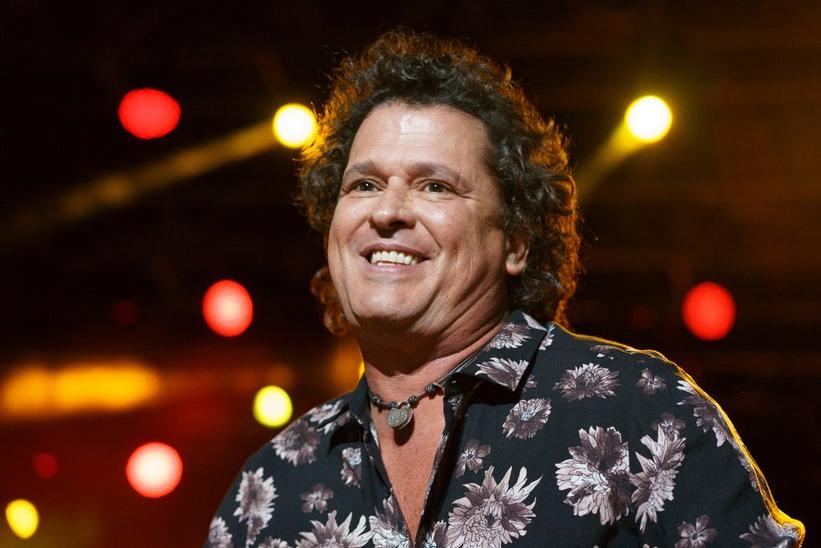All About Carlos Vives, Read in The Article.
Born on 7 August 1961, Carlos Alberto Vives Restrepo is a Colombian singer, composer, and actor. His interpretations of classic Colombian musical traditions such as vallenato, cumbia, champeta, bamboo, and porro, as well as Latin pop, reggaeton, dance-pop, and tropical music, have earned him widespread renown.
Vives is among the best-selling Latin music performers of all time, having sold over 30 million albums globally. He is considered one of the most significant performers in the world since he has helped vallenato acquire worldwide recognition by fusing traditional vallenato music with pop/rock music, creating the subgenre “vallenato-pop.”
Billboard ranked Vives #45 on the Best of All Time Latin Artists [1] and Top Latin Artists of the 2010s [2] lists in 2019.
His hits include “Matilde Lina”, “La Hamaca Grande”, “La Gota Fría”, “Alicia Adorada” (all four of which are covers of classic vallenato songs), “Pa’ Mayte”, “La Tierra del Olvido”, “Tu Amor Eterno”, “Fruta Fresca”, “Déjame Entrar”, “Luna Nueva”, “Carito”, “Papadio”, “Como Tú”, “Décimas Del Parecido” (a tribute to Guillermo Martínez, a Cuban-born radio host who resides in Mayagüez, and for whose program Vives was an occasional master control technician), “Robarte un Beso (a collaborative effort with Ricky Martin).
Vives is also an accomplished actress. His portrayals as Gallito Ramrez in the serial opera Gallito Ramrez and Rafael Escalona in Escalona, a biopic of the great Colombian musician of the same name, are among his most notable and enduring roles.
Ricky Martin, Camilo, Shakira, Maluma, Wisin, Daddy Yankee, Alejandro Sanz, Manuel Turizo, Sebastián Yatra, Mau y Ricky, Michel Teló, Gente de Zona, Thala, Pedro Capó, Marc Anthony, Lalo Ebratt, Los ngeles Azules, Fito Páez, Carlos Rivera, Play-N-Skillz, Mike Baha,
Early years
Carlos Vives was born on August 7, 1961[1], in Santa Marta, Magdalena, Colombia, and lived there for the first 12 years. At that age, he traveled to Bogotá with his family, hoping for a better life. He attended Jorge Tadeo Lozano University and graduated with a degree in Advertising. In Bogotá, he developed a passion for rock, became active in the local music scene, and began performing in bars and cafés. (Reference required)
1982–1989
In 1982, Vives appeared in various television series and telenovelas, including Pequeos Gigantes (1983) and Tuyo es Me Corazón (1984). (“Yours Is My Heart” – 1985). In 1986, he gained prominence after playing the lead character in Gallito Ramrez, a film about a Colombian boxer from the Caribbean coast who falls in love with an uptight lady, represented by his first wife, Margarita Rosa de Francisco. He published his first album, Por Fuera y Por Dentro, in the same year. The album, composed mostly of ballads, was unsuccessful. In 1987, he released his second ballad album, No Podrás Escapar de Mí. The album did not sell well, even though the title tune reached No. 30 on the Billboard Hot Latin Songs chart. His subsequent album, Al Centro de la City, would be his last to incorporate
romantic synthesizer songs. While several of the songs were included in telenovelas, the album, like its predecessors, failed to achieve popularity. (Reference required)
In 1989, he was given an acting position in Puerto Rico, and he took a sabbatical from his singing career when he moved there. He is well known for appearing in the soap operas La Otra and Aventurera. [1] He married his second wife, Herlinda Gómez (they have since divorced). Throughout their marriage, Vives divided his time between Colombia, Miami, and Herlinda’s homeland of Mayagüez.

Carlos Vives
After returning to Colombia in 1991, he was given a life-altering television role. He was cast as the main character of a fantasy series named Escalona based on the life of vallenato composer Rafael Escalona. As a result of singing the composer’s songs in the series, he refocused his career on vallenato, achieving national acclaim with the publication of the Telenovela’s two soundtrack albums, Escalona: Un Canto a la Vida and Escalona: Vol. 2.
In 1993, Vives produced the album Clásicos de la Provincia, in which he began fusing Vallenato with rock, pop, and other Caribbean Colombian ethnic rhythms, accompanied by the band La Provincia. This merger outraged Vallenato traditionalists. Clásicos de la Provincia earned the Best Album award at the Billboard Latin Music Awards, exposing Colombia and the rest of the world to Vallenato. (Reference required)
The subsequent album, La Tierra del Olvido, would continue Vives’ efforts to fuse rock, funk, and pop music with traditional Colombian styles. The album produced legendary singles for Vives, including the title tune and the upbeat opener Pa’ Mayte.
Tengo Fé (1997), El Amour de Mi Tierra (1999), Déjame Entrar (2001), and El Rock de Mi Pueblo (2004) were all economically successful and critically acclaimed. The album “Déjame Entrar” by Carlos Vives earned him his first Grammy Award for Best Traditional Tropical Latin Album in 2002. (Reference required)
In 2009, he published the CD Clásicos de la Provincia II, available only at “Almacenes Éxito,” a grocery chain in Colombia. With this album, Vives returned to his signature Vallenato sound. (Reference required)
Ana Mara Canseco interviews Carlos Vives Current







